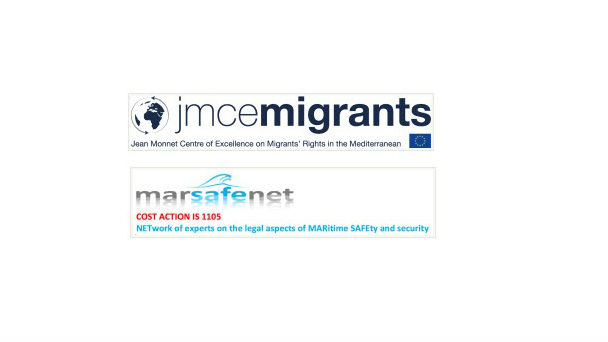Introducing the Charter of Naples

Human Rights at Sea is pleased to introduce the Charter of Naples: a bilingual policy oriented document aimed to suggest to national and European policy-makers the way forward to deal with migrations in the Mediterranean Sea.
The Charter, includes six concrete proposals, which acknowledge the results obtained from the initiative “Stakeholder Questionnaires – Migration at Sea: A comprehensive Approach” and takes into account the discussion held at the Stakeholders Workshop “From Mare Nostrum to Triton and the Way Forward to Deal with Migration in the Mediterranean Sea”, held at the University of Naples “L’Orientale”, Italy, on 15 May 2015.
The document, launched officially on the World Refugee Day last month, has been supported by MARSAFENET – a network of experts on the legal aspects of maritime safety and security – and JMCE Migrants – the Jean Monnet Centre of Excellence on Migrants’ Rights in the Mediterranean – which aim both to foster the exchange of information and practices among stakeholders and promote the adoption of feasible and suitable solutions.
The document’s proposals
“To national and international policy makers we propose to:
“Consider the current dimension of the phenomenon of migration in the Mediterranean Sea as a global phenomenon requiring a comprehensive approach and shared efforts among States.
“Reassess border control operations in view of the current massive phenomenon of irregular migration in the Mediterranean Sea. In particular:
- The EU should promote a credible search and rescue operation in the Mediterranean, on the model of Mare Nostrum,
- Frontex should effectively fulfill its dual role of coordinating operational border support to Member States under pressure and helping to save the lives of migrants at sea;
“Combat criminal smuggling and trafficking more efficiently through:
- Regional and international cooperation among States and through effective measures to prevent smuggling in the migrants’ lands of origin and in transit States;
- Additional cooperation in the field of harmonization of judicial actions against smugglers and traffickers
- Additional cooperation to promote a wider and more effective application of the existing international provisions on Smuggling.
“Encourage the adoption of international provisions including clear criteria to determine the place of safety to disembark migrants, in order to guarantee effective protection of human rights, compliance with the principle of non-refoulement, and a more equitable sharing of efforts among EU States to host survivors and meet their needs and legal entitlements;
“Improve and expand legal channels of access to Europe, through a revision of the Dublin System, in full compliance with the right of asylum as recognized in Article 18 of the EU Charter of Fundamental Rights, in order to ensure the refugees’ right to freedom of movement within Europe and the right to family reunification, encouraging the creation of alternative channels of safe and regular access, via humanitarian visas, resettlement, easier family reunion, expansion of work, research and study programs;
“Support shipping companies in their efforts to save lives, through clear docking schemes, disembarkation options, and rapid coordination of rescue operations, so as to minimize any economic damages and financial losses that they may incur in complying with their duty to rescue migrants at sea.”
The document is available here.
The products and services herein described in this press release are not endorsed by The Maritime Executive.
